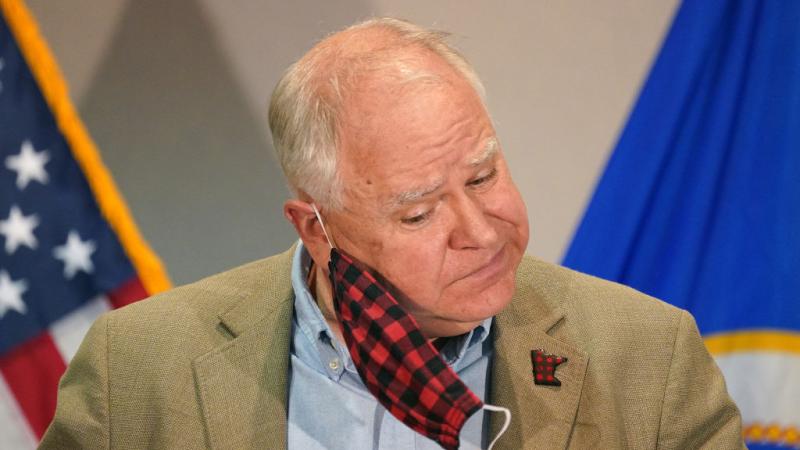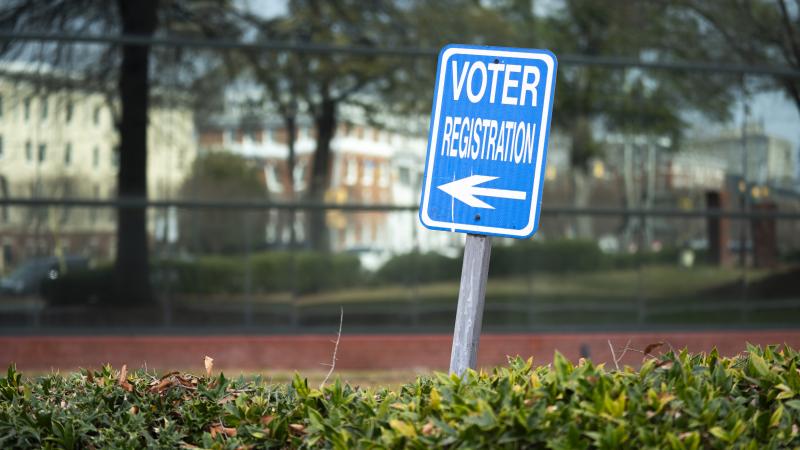Rand Paul’s naughty list exposes $52 billion in wasteful federal spending
From $2.4 million for an Arctic dinosaur film to $250 million for border walls in the Middle East and North Africa, Kentucky senator uses Festivus list to call attention to wasteful spending.
Sen. Rand Paul (R-Ky.) has created a naughty list to highlight wasteful spending from COVID-19 aid to Afghanistan..
Chairman of the Emerging Threats and Spending Oversight Committee, Paul has been releasing the report since 2015. This year, he reported more than $52.5 billion wasted by the federal government.
Wasteful spending detailed by Paul ranges from $2.4 million for an Arctic dinosaur film to nearly half a million dollars allocated to study pigeons playing slot machines. There was also $250 million for border walls in the Middle East and North Africa.
1st place "Platinum Pig": More than $40 billion in COVID-19 related spending
Most of the pandemic-related waste stems from $36 billion in "improper" unemployment insurance payments. At least $4.29 billion was spent on "bad loans" given by the Small Business Administration.
A Baltimore school received $1.27 million in excess COVID relief funds by falsely reporting 140 students who were not actually enrolled.
In New York City, Democrat Mayor Bill de Blasio used $25 million in federal pandemic relief funds to pay 3,000 artists to display their works of art, and "theoretically even displaying your third-grade paintings or dance moves qualify" Paul wrote. The $25 million could have covered about half the cost of a temporary hospital in the pandemic.
2nd place "Platinum Pig": Nearly $4 billion in Afghanistan
"Whether it be abandoned military equipment or resources, we may never fully know exactly how much of your tax money was trashed as well," Paul wrote, not calculating 20 years spent in Afghanistan into his final total.
Two major infrastructure projects in Afghanistan created by the U.S. went virtually unused according to Paul. $87.9 million was spent on Afghan farm irrigation systems, of which only 2.7% were used. More than $2.4 billion was spent on buildings in Afghanistan that are either unused or "are not being used for their intended purpose, have deteriorated, or have been entirely destroyed."
Paul also cited two major airplane-related waste areas in Afghanistan. More than $770 million was spent by allowing foreign countries to fly aircraft without asking for reimbursements. Nearly $550 million in Italian airplanes were bought by the U.S. government for the Afghan Air Force. The planes had numerous problems and were scrapped shortly thereafter.
3rd place "Platinum Pig": More than $8.4 million miscellaneous items including vacations for Koreans, fattening eels and teaching the French about U.S. culture
Much of the miscellaneous waste stems from international relations and bizarre scientific studies.
Congress allocated a quarter of a billion dollars to build border walls in the Middle East and North Africa. Slightly less was given to green energy programs in all of Africa: $179 million.
Turning to Asia, a $150,000 grant was given for Koreans ages 15-30 which allows them to come to Washington, D.C., to learn about "climate change activism." More than $11 million was used to "tell the people of Vietnam to stop burning their trash," Paul writes.
In Europe, about $200,000 is going to teach the French public about American culture. More than $180,000 was spent translating books into Georgian. Paul contrasted this spending by pointing out how about 36 million adults in the United States are unable to read above a third-grade level. "It is callous to ship dollars around the world for textbooks when our own nation’s students are struggling," he wrote.
Paul also highlighted odd experiments. For example, a $2.4 million grant from the National Science Foundation went to "inspire future polar scientists" through a film about dinosaurs in Antarctica. Nearly $1.3 million went to "study how hearing good or bad news affects your happiness," Paul writes.
Numerous studies focused on animals, such as $4.5 million that was spent seemingly abusing ferrets in laboratories. More than $460,000 was given to study pigeon gambling on slot machines. It cost the FDA "$337,500 to fatten eels for human consumption," according to the Kentucky Senator.
Other notable miscellaneous items include the fact that the Washington, D.C. Metro System has given more than $28,000 to the ride-sharing program Lyft to pick up riders when the metro is closed.
Nearly $3.5 billion went to spending 20 years developing a failed "amphibious combat vehicle." Not forgetting Social Security, Paul reports that $4.2 billion was spent on overpayments.
"You’d almost think the government’s annual New Year Resolution is to spend more and more money. Well, it is!" Paul joked. He then reassured Americans, "But don’t worry, I will continue to fight against government waste."
















